Euro 2016: French football chasing a number of goals
- Published
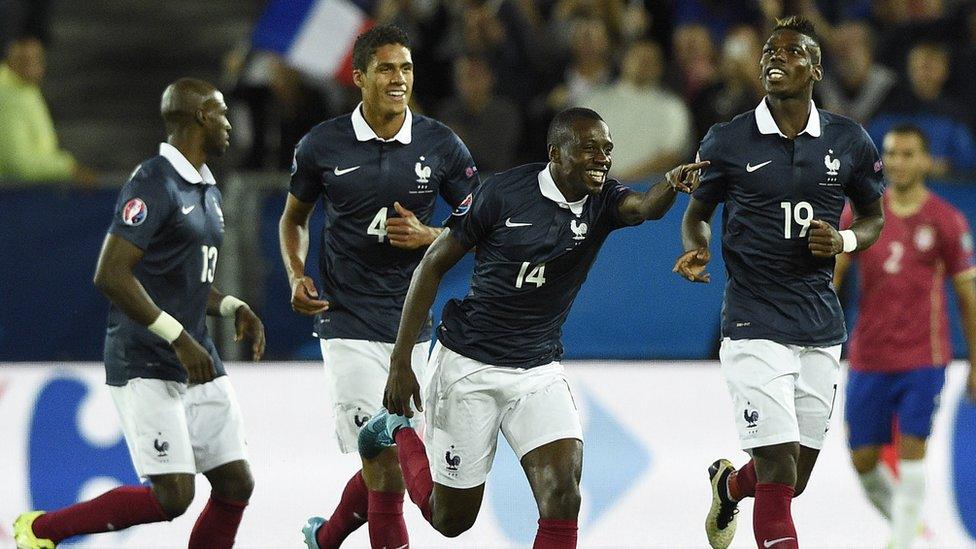
The French football authorities are hoping that Euro 2016 has a lasting legacy
The European Championship has been in the headlines this week, as a number of dramatic results have seen football teams in most qualifying groups preparing for an exciting conclusion.
And with 24 nations qualifying for the final stages for the first time, up from 16, there is plenty of hard work too for the organisers of next year's Euro 2016 tournament in France.
Ten match venues will be used in nine cities, including four new stadiums and five renovated ones.
Euro 2016 staff are hoping not only for a successful competition, but also to leave a sustainable legacy for the French football industry, and to give the sport deeper roots across the country.
'More than winning'
"We hope we can change the image of football, to show people the importance of grassroots football, and that it is not just about billionaire players," says Victoriano Melero, deputy general manager of the French football association, the FFF (Federation Francaise de Football).
"We have to show that football is as much about coaching and volunteering with kids, and that the values of football are about more than just winning."
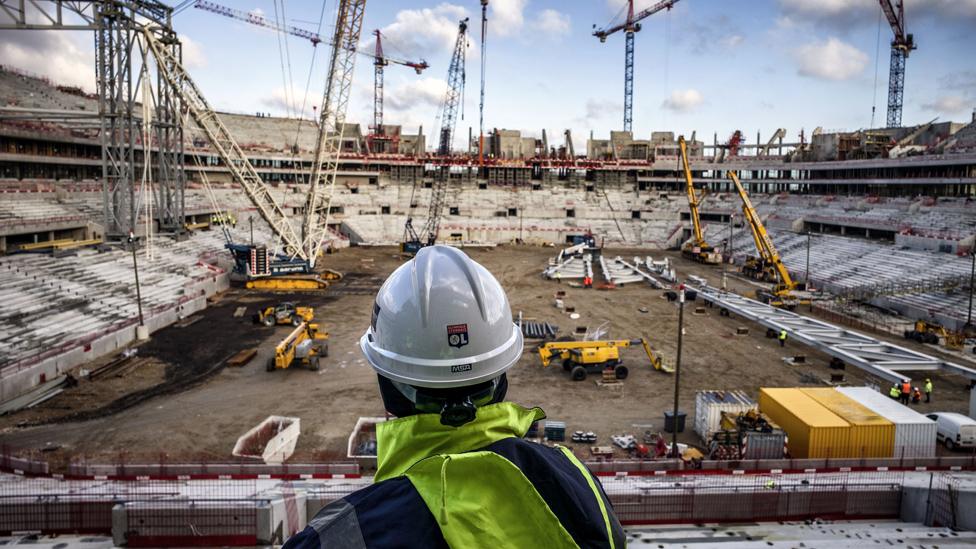
France decided to build four new stadiums for the tournament
The FFF has a number of programmes it is running in conjunction with Euro 2016 to achieve these aims.
Between now and next June a Euro 2016 roadshow will visit 20 non-host cities, spending a weekend in each, giving football demonstrations and holding related civic and social events.
Another programme will go into schools and introduce the sport of football to six to 10 year olds.
And €40m ($45m; £33m) is already being invested in modernising facilities at smaller clubs, providing cash for things like floodlights and changing rooms.
Meanwhile, a training programme has been launched to provide thousands more football coaches, volunteers and educators.
And a volunteer programme to work at Euro 2016 has seen applications for the 7,000 places vastly oversubscribed.
Stadium programme
Meanwhile, some €1.66bn of investment, from a number of sources - mainly from local authorities, but also from national government and clubs - has been pumped into the Euro 2016 stadium programme.
A further 400m euros has been spent on the surrounding infrastructure, such as improved access roads.
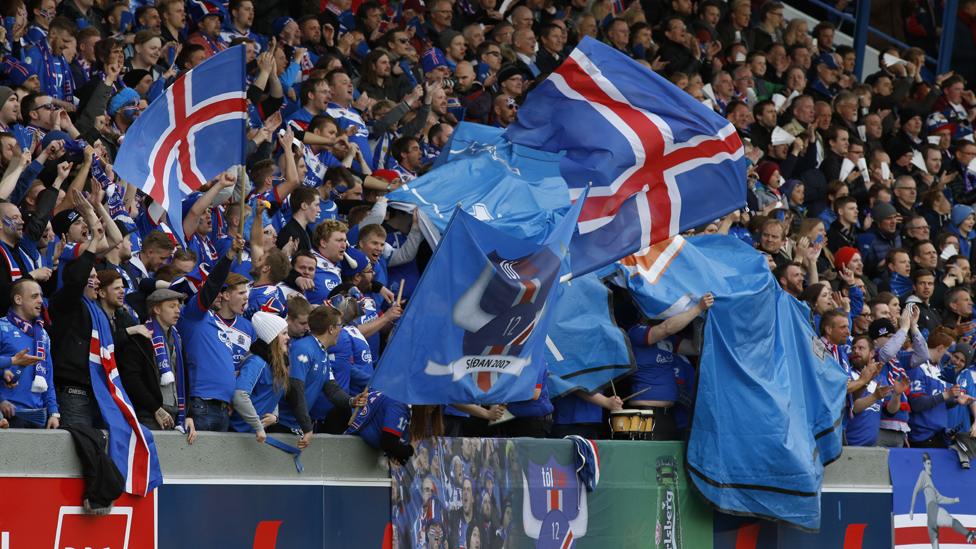
Fans of Iceland, one of the countries who have already qualified for Euro 2016
Alain Belsoeur, head of the stadium strategy committee at the French football league, the LFP (League De Football Professionnel), says that three of the four new stadiums are already in place for Euro 2016.
And he says that the fourth, being built in Lyon, will be ready by late December or early January.
The Lyon stadium is unusual in that it is the only one of the host venues whose building costs are being met solely by the host club.
The stadiums issue is one of the most important for French football, as it is felt the country did not capitalise properly on hosting the 1998 World Cup, when only one new stadium, the Stade de France, was built.
By contrast, Germany built a number of new stadiums for the 2006 World Cup, or upgraded existing ones, and its domestic league attendances now far outstrip those of France.
"The Germans used the World Cup stadium programme to build their football fan base, and we are hoping for this effect this time round," says Mr Belsoeur.
He said that the improved stadiums, and bigger gates, would allow French clubs to improve match day revenues after the Euros.
"We need to bring more spectators into the stadia," he says. "At present our clubs only make 10% of their revenues from fans.
"However, contrary to 1998, our clubs will now have properly new or modernised stadiums, and with more hospitality places.
"We hope that the new stadiums will bring in people who may not be football fans, but who are casually interested in football, such as happens in England or Germany.
"We have to make sure the stadiums are fully optimised."
Strong ticket sales
The final draw takes place in Paris on 12 December, with a number of countries already qualified alongside hosts France, including England, Iceland, the Czech Republic and Austria.
The first ticket sales phase, which closed in July and had made one million ticket available, was oversubscribed by more than 10 to one, despite France being the only guaranteed participants.
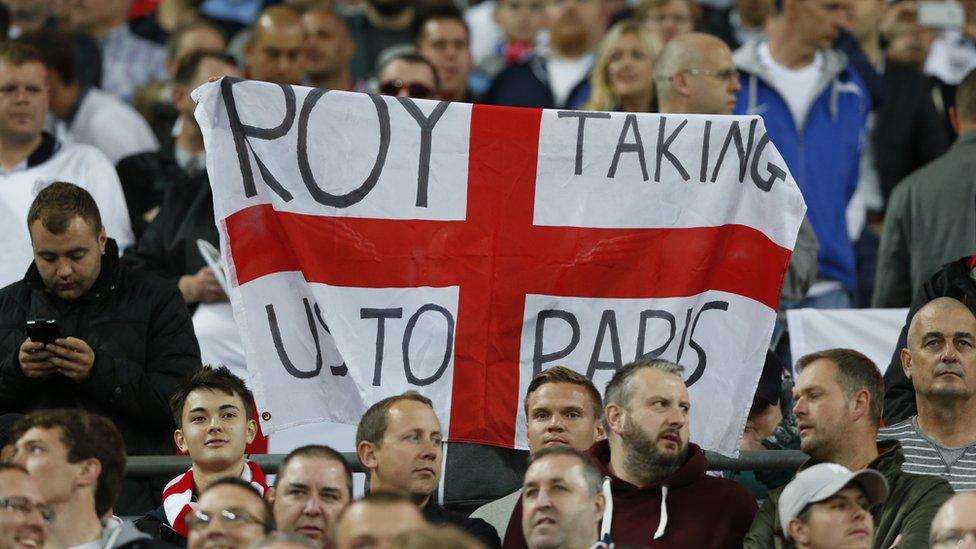
England supporters have been snapping up tickets for Euro 2016
Mr Melero at the FFF says that organisers had thought the proportion of ticket applications would be 60% French and 40% overseas.
In reality those figures were reversed, with fans from Germany and England leading the foreign buyers.
And he points out that while France is making good most progress towards Euro 2016, one area that will constantly need intense attention is fan security.
"Not inside the stadiums, the security issue will be to do with the fan zones," he says. "We want to have fan zones in all the host cities."
The hospitality sales programme is also under way, with fans in the UK being offered a choice between platinum packages in private boxes and gold packages in hospitality lounges.
The platinum packages start at €1,225 per person, per match, before tax, while the gold programme is broken down into four different potential packages, starting from €780 per person, per match, before tax.
'New football economics'
Mathieu Ficot is chief commercial officer at the LFP, and he hopes that as well as extra revenues from improved stadiums, that the Euros will bring about a new commercial professionalism to French club football.
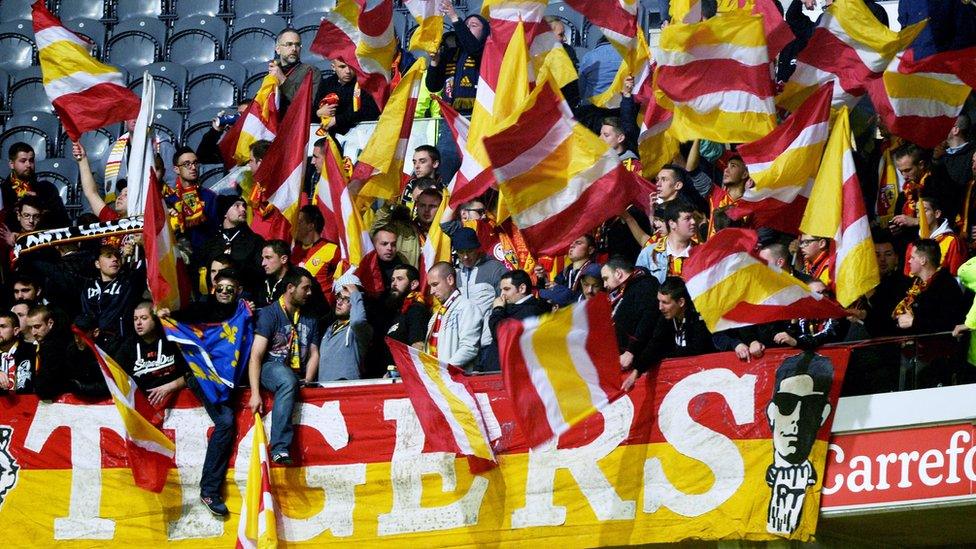
French football authorities want to attract more fans to the domestic game
He hopes a successful tournament will bring new investors into clubs, and that other changes can be made to make the domestic league product a more attractive day out.
These include things such as making undersoil heading compulsory for top flight clubs, and allowing alcohol to be sold at matches.
"We want to see a new era for the economics of French football," he says. "We have to work hard to improve the fan experience."